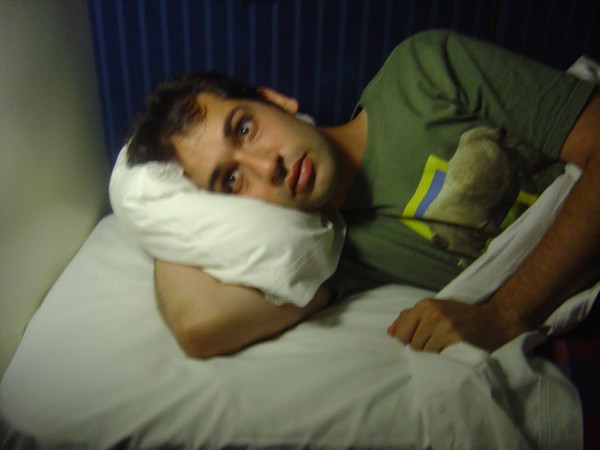By Dane Lorica, | December 25, 2016

A study has revealed that people who experience discrimination have poor sleep quality. (Ben W/CC BY-NC 2.0)
Those sleepless nights may be the result of discrimination, according to a new study.
Like Us on Facebook
About 441 adults, whose average age was 47, were asked to put on an activity monitor device for seven days. This was done to help researchers examine the individual's' sleep measures including sleep efficiency and duration. The participants were also asked how often they suffer from sleep problems and discrimination, harassment, maltreatment, and insults.
Using the 'Everyday Discrimination Scale,' it was discovered that one-third of the individuals who participated in the study had poor sleep efficiency, while half of them claimed to have poor quality of sleep. The researchers found out that individuals who get high scores in discrimination test are 12 percent more likely to have poor sleep efficiency and with nine percent higher chance of having poor sleep quality. Further, the researchers said that time spent awake in bed after waking up is correlated with discrimination and that older individuals, mostly males, were more likely to experience sleep problems. The results also suggest that racial discrimination is still highly prevalent among non-whites who have four times higher risk of getting inadequate sleep.
Author Sherry Owens said that "discrimination is an important factor associated with sleep measures in middle-aged adults. The results supported the idea that "discrimination acts as a stressor that can disrupt subjective and objective sleep."
Poor sleep efficiency and quality may result in negative health outcomes such as cardiovascular diseases and even death. In fact, a new study said that both first-hand and second-hand discrimination might adversely affect a person's blood pressure due to certain genetic markers.
The study linking discrimination to poor sleep was published in the Psychosomatic Medicine: Journal of Biobehavioral Medicine and is the first research that considered the effects of discrimination on both subjective and objective measures.
-
Use of Coronavirus Pandemic Drones Raises Privacy Concerns: Drones Spread Fear, Local Officials Say

-
Coronavirus Hampers The Delivery Of Lockheed Martin F-35 Stealth Fighters For 2020

-
Instagram Speeds Up Plans to Add Account Memorialization Feature Due to COVID-19 Deaths

-
NASA: Perseverance Plans to Bring 'Mars Rock' to Earth in 2031

-
600 Dead And 3,000 In The Hospital as Iranians Believed Drinking High-Concentrations of Alcohol Can Cure The Coronavirus

-
600 Dead And 3,000 In The Hospital as Iranians Believed Drinking High-Concentrations of Alcohol Can Cure The Coronavirus

-
COVID-19: Doctors, Nurses Use Virtual Reality to Learn New Skills in Treating Coronavirus Patients







